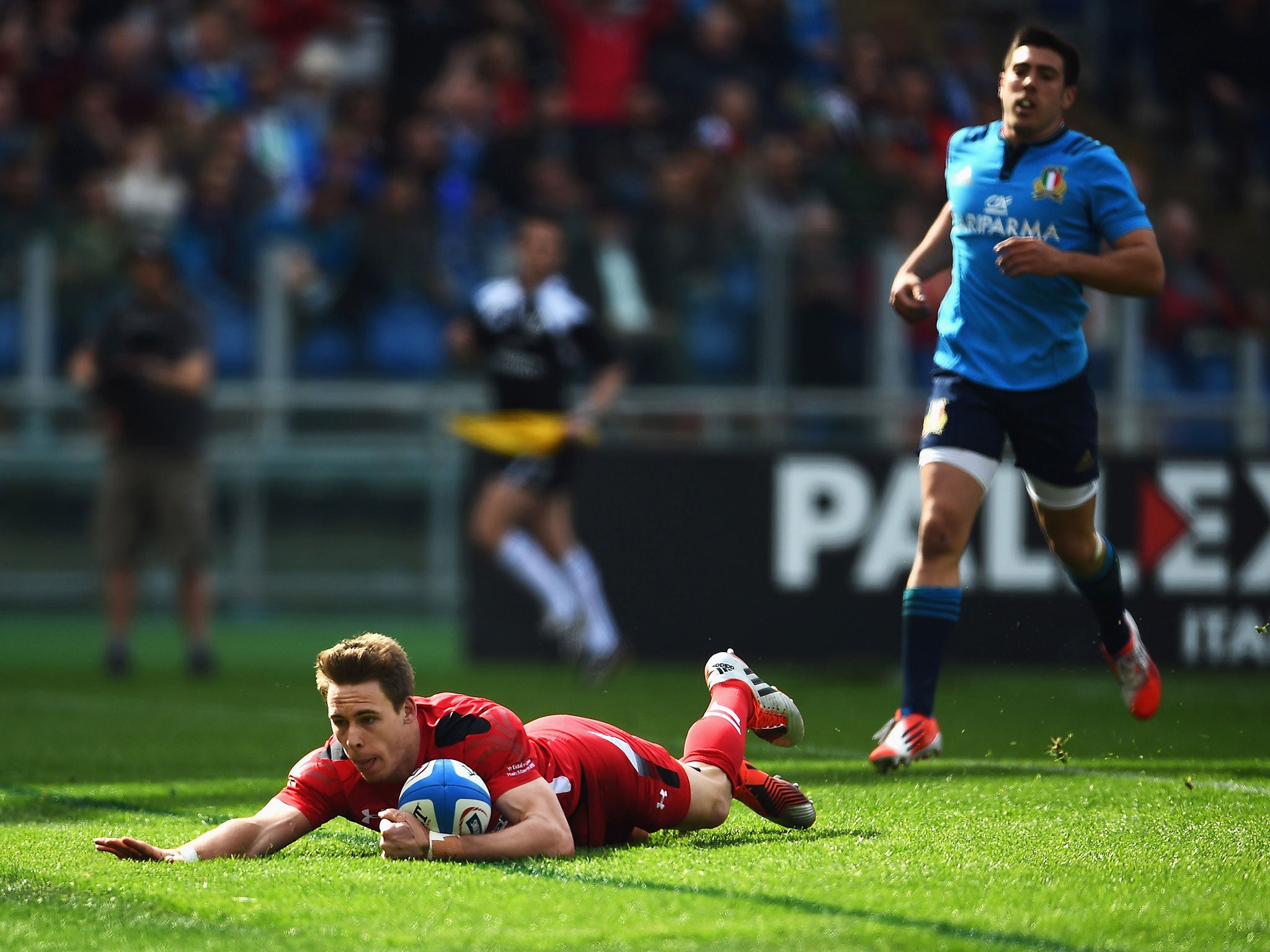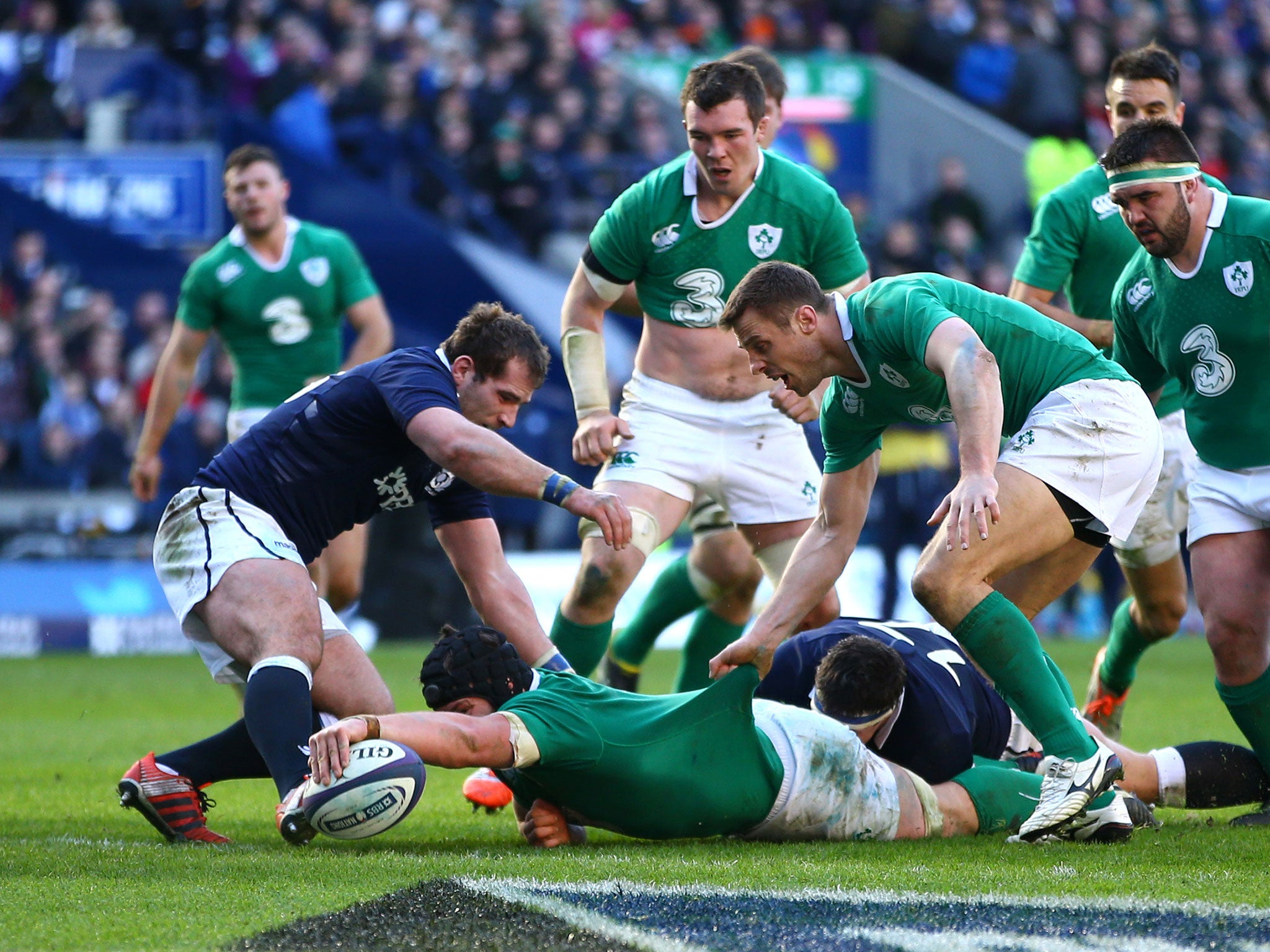Six Nations 2015: Five things we learnt from thrilling final round of the competition
England fell six points shy of securing the crowm

Your support helps us to tell the story
From reproductive rights to climate change to Big Tech, The Independent is on the ground when the story is developing. Whether it's investigating the financials of Elon Musk's pro-Trump PAC or producing our latest documentary, 'The A Word', which shines a light on the American women fighting for reproductive rights, we know how important it is to parse out the facts from the messaging.
At such a critical moment in US history, we need reporters on the ground. Your donation allows us to keep sending journalists to speak to both sides of the story.
The Independent is trusted by Americans across the entire political spectrum. And unlike many other quality news outlets, we choose not to lock Americans out of our reporting and analysis with paywalls. We believe quality journalism should be available to everyone, paid for by those who can afford it.
Your support makes all the difference.The 2015 Six Nations reached an unforgettable climax on Saturday, when England, Ireland and Wales racked up sizeable scores, in a desperate struggle for points-difference supremacy.
Ultimately Ireland did just enough to secure a second-successive Six Nations crown, despite England and Wales' thumping wins.
But after a day of number crunching and nail biting, what did we learn from the tournament's grand finale?
The Six Nations does not need to bring in any bonus-points
The Six Nations remains the only major rugby tournament in the world that does not award teams bonus points for scoring four tries or more in a game or losing by less than eight points.
In January 2013, those in charge of the tournament appeared eager to introduce a bonus-point system, to provide teams with an extra incentive and keep them competing until the end of each contest. John Feehan, the chief executive of the Six Nations, even drew up two consultation papers on the subject, for each of the six unions to contemplate.
But Saturday's series of scintillating spectacles, in which 221 points and 27 tries were scored, proved that when it all comes down to points difference, teams do not need an added incentive to play all-out attacking rugby and that the tournament remains fiercely competitive right up until the very last play.
This year, we were treated to an enthralling final day, made possible by the numerous points difference permutations.
Ireland's previous head coach, Declan Kidney openly supported the introduction of a bonus-point system, but his predecessor will not share his enthusiasm, after winning two-consecutive titles on points difference.
Liam Williams can produce moments of magic
Leigh Halfpenny might be a match winner but his understudy, otherwise known as Liam Williams, is a game changer.
Williams moved from wing to full back after Halfpenny was forced off with a concussion in the first half and with two moments of brilliance, the Scarlets' man reduced a team of defiant Italian defenders to 15 defeated individuals.
Six minutes into the second half, Wales were struggling to find a way through a well-organised Italian line, until they were awarded a penalty just outside Italy's 22 after 11 fruitless phases.

Williams reacted first and cut a courageous line before the game had even been restarted, Rhys Webb then took a quick tap and fed the oncoming Williams, who coasted through a cluster of Azzurri defenders and over the line to score.
Just two minutes later, Williams plucked a loose kick out of the sky, glided through two Italians and put George North over in the corner.
His solo effort galvanised his teammates into attacking with real intent but it was his second piece of superb skill that inspired them to go on and score six more tries.
The Tullow Tank is back on track
Ireland have been accused of an over-reliance on their kicking game, but they are more willing to keep it in hand when their three best ball carriers (Sean O'Brien, Jamie Heaslip and Cian Healy) are fit and firing.
Before the tournament, Ireland's most combative carrier, O'Brien, the man they call the Tullow Tank, had not played for his country since November 2013, because he was forced to undergo two shoulder reconstructions. His injury woes continued throughout the start of the Six Nations and after he missed Ireland's opener with a hamstring injury, he was pulled off in the first half of the England game with a concussion.

O'Brien may have missed out on Ireland's 2014 Six Nations win, but he stepped up against Scotland to score two tries, which ultimately put his side beyond England's reach.
The bullish back rower was too much for the Scots to handle, he thundered through a napping Scottish defence and rounded Dougie Fife for his first score before muscling his way over the line in the 72nd minute for what would eventually prove to be a tournament winning try.
It seems that only injury can slow the Irish juggernaut down, but Ireland's World Cup opponents will be wondering: what can stop him?
Ireland are as resilient as they are efficient
Ireland were on course for their first Grand Slam since 2009 and a record breaking 11th successive title before they were thwarted by some dogged Welsh defence at the Millennium Stadium
But on the final day of the tournament Joe Schmidt's side recovered from their crushing defeat in Cardiff to claim a record equalling win over Scotland and secure a second-successive title for the first time since 1949.
The Irish looked as composed and efficient as ever at Murrayfield. They needed to win by no less than 21 points, after Wales thrashed Italy earlier in the day, and they never seemed phased by the task of chasing that total.
Ireland came tearing out of the traps, Paul O'Connell lead from the front and became Ireland's oldest ever scorer after just five minutes. It then took them just over an hour to establish a 23-point lead.
They had to weather a few Scottish storms as the hosts played an ambitious and expansive attacking game, but the Irish defence remained typically resolute.
After securing the all-important lead, they continued to attack as they looked to set a target for England to pursue. Ireland patiently pressed forward, probing the corners with some acute chips, and their persistence paid off when O'Brien scored.
However, they were spared by the TMO when Stuart Hogg was deemed to have knocked on over the line at the very end.
England are swiftly addressing their shortcomings
When England emerged from the tunnel at Twickenham, they knew what they had to do to take the Six Nations title for the first time in four years, win by at least 26 points.
They also knew that their poor finishing against Scotland had allowed Ireland to establish a commanding lead and if they wanted to claim the crown, they would have to take every chance in their Six Nations showdown.
With just two minutes on the clock, Mike Brown went hurtling towards same corner that Luther Burrell was aiming for when he broke away in the first minute of the Scotland match. But while Burrell had just one man on his shoulder seven days earlier, Brown had four players in support.
Ben Young's was one of those runners and he beat the queue of Englishmen to finish off his side's first attacking move of the match.
When Anthony Watson scored his second, he was just one of five players that swarmed towards the corner and Georg Ford worked extremely hard to get on Young's shoulder to create a two-on-one, which he scored in the 46th minute
England vastly improved their work around the breakdown after the Ireland defeat and addressed their slack support play immediately after the Scotland game, which enabled them to go on and score seven tries against France.
Stuart Lancaster's side may have lost the Six Nations, but their insatiable appetite for improvement is encouraging.
Join our commenting forum
Join thought-provoking conversations, follow other Independent readers and see their replies
Comments